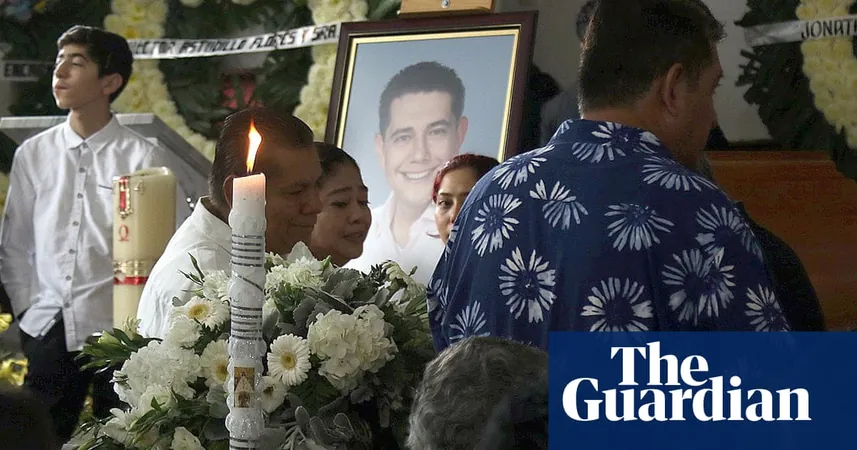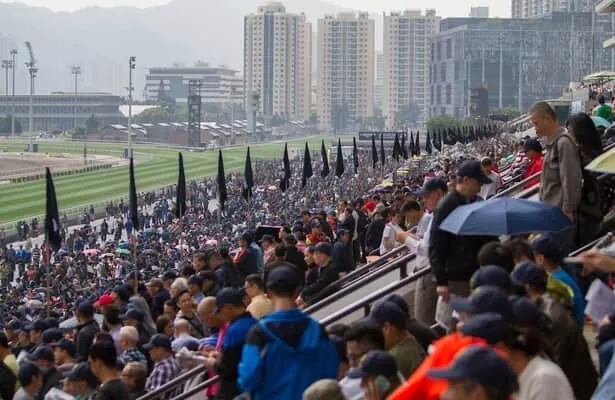
Surge of Outrage in Mexico After Newly Elected Mayor's Brutal Beheading
2024-10-08
Author: Ken Lee
Introduction
In a shocking display of violence, the murder of Alejandro Arcos Catalán, the recently elected mayor of Chilpancingo, has sent shockwaves through Mexico's political landscape. Just days after being sworn in on September 30, Arcos Catalán was attacked and beheaded, highlighting the severe security crisis facing the nation.
Context of the Incident
The beheading occurred merely a day after Mexico witnessed a historic transition of power, with Claudia Sheinbaum becoming the country's first female president. During her inaugural address, the new president promised to address the alarming state of security in Mexico, a pledge that quickly became critical following the mayor’s brutal assassination.
Significance of Arcos Catalán's Death
Arcos Catalán's death is indicative of the ongoing war between organized crime factions in Mexico. In the days leading up to his murder, two of his close allies had also fallen victim to violence: his secretary, Francisco Tapia, was gunned down on October 3, and Ulises Hernández Martínez, a former police commander expected to head the mayor's security team, was murdered just before the inauguration.
Public Reaction and Outrage
Heartbroken citizens shared emotional clips of Arcos Catalán, who expressed his aspiration to be remembered as a promoter of peace and happiness in his community. "I want to die fighting for my city," he stated, reflecting his deep commitment to his role and the people he served.
Political Response
The outcry over this violent act has been palpable. Alejandro Moreno, president of the Institutional Revolutionary Party (PRI), condemned the incident as a "grotesque act of terror," while opposition senator Ricardo Anaya described the security situation in Mexico as "spine-chilling." He pointed out that since the inception of the war against drug cartels in 2006, over 450,000 lives have been lost. "This decapitation should make us shudder—it’s intolerable, and we must act decisively to put an end to this violence," he urged.
Sheinbaum's Strategy
In an effort to ease concerns, Sheinbaum defended her decision to continue her predecessor Andrés Manuel López Obrador's "hugs, not bullets" security strategy, emphasizing justice as the pathway to peace rather than militarized methods. Nonetheless, critics argue that López Obrador's approach has failed to curb violence, as evidenced by last year's staggering murder rate of over 30,000 and the alarming presence of Mexican cities among the world's most dangerous.
The Ongoing Challenge
As Sheinbaum embarks on her term, she faces the daunting challenge of addressing the escalating violence, particularly following the recent events. She hinted that she would reveal detailed public security plans soon—plans that will be essential given the turmoil in other parts of Mexico as well. In Culiacán, for example, fierce battles within the Sinaloa cartel have resulted in numerous casualties.
The Impact of Organized Crime
The menace of organized crime continues to loom large, with the identity of Arcos Catalán's murderers still unknown. The city has been a hotbed for crime, witnessing a brutal rivalry between two gangs, Los Ardillos and Los Tlacos. Politicians have often found themselves intertwined with the criminal underworld—Arcos Catalán's predecessor was ousted after being caught on camera conversing with a gang leader.
Conclusion
As the nation grapples with the implications of this turbulent reality, many in Mexico are left wondering: How many more innocent lives must be lost before meaningful change takes root? This chilling episode serves as a grave reminder that the fight against organized crime is far from over, and the call for justice and accountability is louder than ever.



 Brasil (PT)
Brasil (PT)
 Canada (EN)
Canada (EN)
 Chile (ES)
Chile (ES)
 España (ES)
España (ES)
 France (FR)
France (FR)
 Hong Kong (EN)
Hong Kong (EN)
 Italia (IT)
Italia (IT)
 日本 (JA)
日本 (JA)
 Magyarország (HU)
Magyarország (HU)
 Norge (NO)
Norge (NO)
 Polska (PL)
Polska (PL)
 Schweiz (DE)
Schweiz (DE)
 Singapore (EN)
Singapore (EN)
 Sverige (SV)
Sverige (SV)
 Suomi (FI)
Suomi (FI)
 Türkiye (TR)
Türkiye (TR)